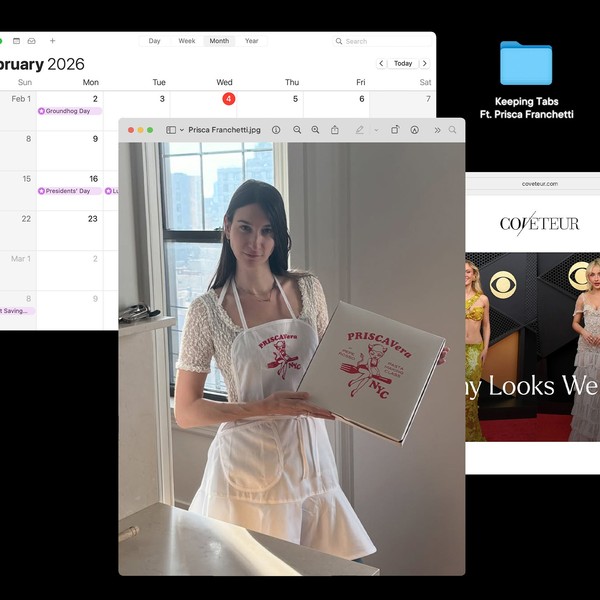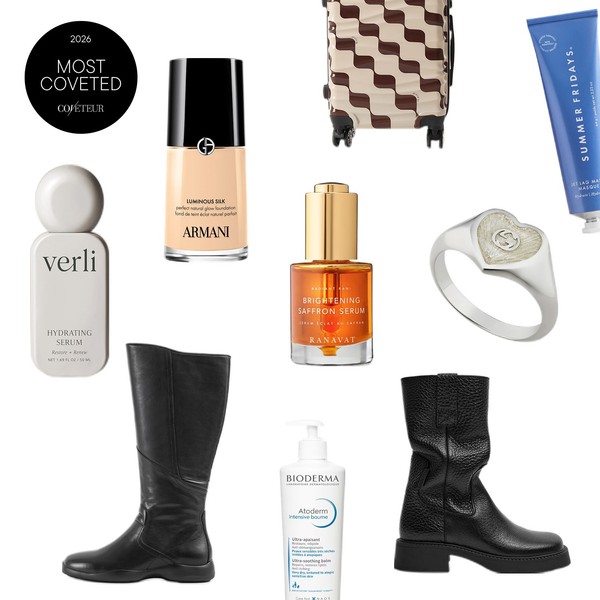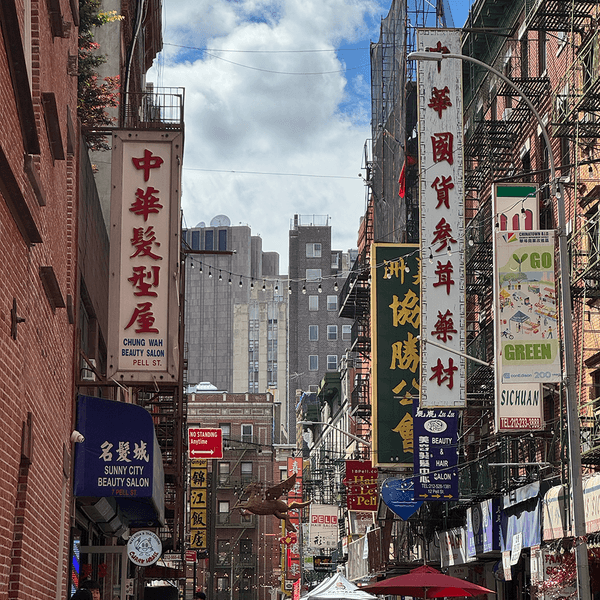‘The Devil Wears Prada’ Musical Director on Modernizing the Cult Classic for Broadway
Anna D. Shapiro takes us behind-the-scenes of the Chicago musical.
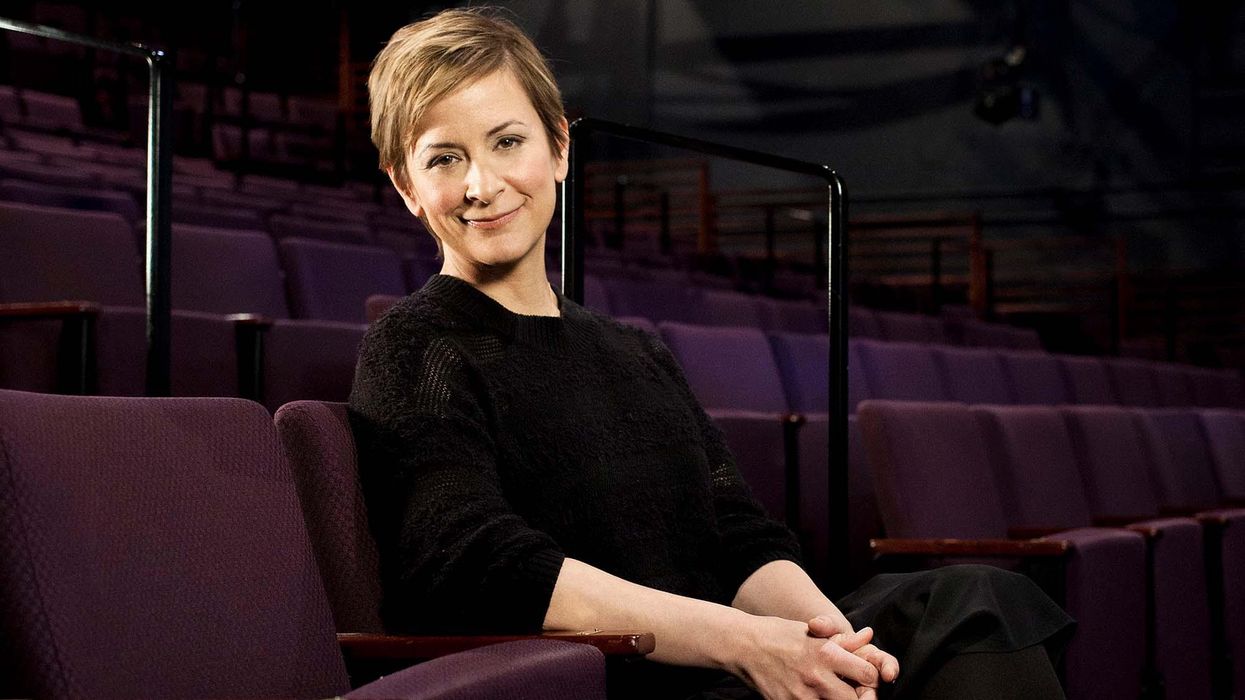
The devil is back. Nineteen years after the publication of the New York Times bestselling novel by Lauren Weisberger and 16 years after the debut of the cult-classic film of the same name starring Anne Hathaway and Meryl Streep, The Devil Wears Prada: The Musical will make its world premiere on July 19 with Broadway in Chicago at the James M. Nederlander Theatre.
After being postponed twice due to the pandemic, the musical is highly-anticipated by Devil Wears Prada and Elton John fans alike. John, alongside singer/songwriter Shaina Taub, wrote the songs for the musical—a modern take on the original story starring Taylor Iman Jones as Andy Sachs and Beth Leavel as Miranda Priestly. “[The musical] integrates the spine of both the movie and the book, which is this journey of this young ambitious woman to a deeper understanding of herself,” director Anna D. Shapiro tells Coveteur. “It’s pulling [out] the wonderful, delightful, and charming, but also moving, important, and deep [parts] that can actively live on stage.”
Ahead of the musical’s premiere, Coveteur sat down with Shapiro to discuss everything from the transformative power of fashion to refusing to select a cast full of “skinny white women” to the art of recreating the Miranda Priestly character (famously based on Vogue Editor-in-Chief Anna Wintour) for both the stage and today’s publishing industry. Shapiro has been sworn to secrecy on one thing only—the show’s major fashion partnerships—and all will be revealed when the curtain rises on opening night.
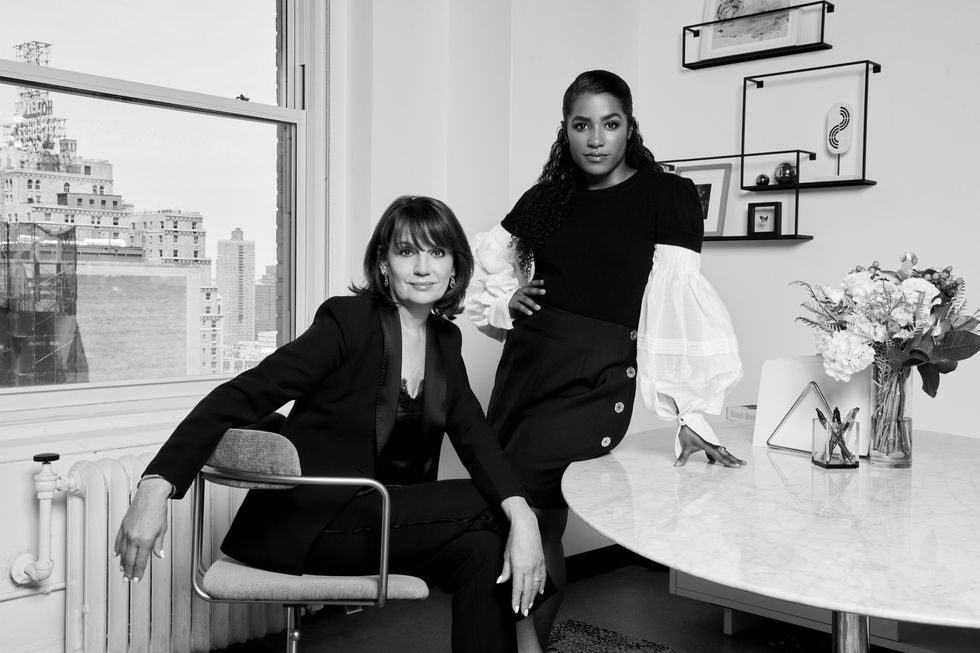
Beth Leavel (left) who plays Miranda Priestly and Taylor Iman Jones (right) who plays Andy Sachs.
Photo: Jenny Anderson
What made you want to direct this musical?
“I’m always interested in any kind of coming-of-age story, especially when it's with a young woman. I was also attached to the idea that I don’t actually find fashion to be silly or meaningless or shallow. I think it has silly, meaningless, and shallow elements. But the way that fashion has been deployed for many marginalized groups—for women, for gay men, for trans people—fashion and the way we present ourselves sometimes can get us where we need to go before we are actually internally ready. It’s the way we can arm ourselves, defend ourselves, declare ourselves. I wanted to watch this young woman who thinks she knows what is good, what is bad, what is right, and what is wrong, move through a really critical choice-making time in her life and recognize that things aren’t so simple. It’s kind of beautifully complex, and in the end if you continue to look outside of yourself for validation of your life you’re never really going to be happy, even if you’re successful, because success does not necessarily equal happiness.
There’s a line in the show where somebody says to the Andy character, “You have a wonderful way of making a guilty pleasure feel substantial.” I think that’s what Lauren Weisberger did with her story and I think that's what we're doing—we are making a guilty pleasure substantial.”
Elton John wrote the music for the show. Can you talk about how the music has taken shape and what it’s been like collaborating with him?
“He [signed] on [to the show] before me, and he had an attachment immediately to it because he actually has an attachment to the world and has an understanding of the complexity of the power dynamics, the economics, and the identity politics of fashion. He’s also one of the greatest embracers of display that there is. Watching Elton and our lyricist Shaina Taub, the two of them are incredible. They just have a magical connection. He does not like to look at the lyrics—he’s superstitious—until the morning that he goes into the studio. I’ve been lucky enough to be in there a couple of times. [Shaina] understands the journey of the character, [Elton] understands how to communicate the different moments of emotionality, and he also understands dramatic structure. His commitment to the show and his commitment to Shaina and delivering her lyrics has been moving and special.”
Will the musical be set in the present? If so, what decisions were made to modernize the story?
“Essential to the story is its contemporary nature—it has to be happening the day you’re watching it, particularly because of fashion. The fashion is like a cultural history book. The most important thing was to make it contemporary because it is the story of a contemporary young woman. The other thing is that obviously there are cultural differences around, quite frankly, workplace and how to make sure you’re representing a believable difficult boss. It’s also really recognizing the reality of a woman in charge of something so huge and how that is still as rare—it’s why Anna [Wintour] is still the person that she was then.
In my [interview for the director role], I said, ‘If you want to do this with a bunch of skinny white women, I’m not your person.’ That has nothing to do with the politics of the moment, that has to do with the reality of fashion and the reality of culture. I wanted it to look like the world that I move through, that my kids move through, and that my students move through. And I wanted to point out the challenge of being a woman, and then there is of course the challenge of being a woman of color, certainly."
Can you talk more about the decision to cast a woman of color as the lead, and why Taylor Iman Jones was the right fit to play Andy Sachs?
“We wanted somebody whose thoughts, challenges, and conflicts were readable on their face. We wanted someone who you really could root for and whose choices you could either trust or lament in a way you took personally. Our attachment to Andy is critical in experiencing this show. Taylor has a kind of openness and accessibility that is just rare. She’s very, very, very special. You watch her move through this and you have access to the whole thing. She’s not just a brilliant and incredible singer, she's an incredible actress. Seeing that in a young person and being able to really trust her as the reliable narrator of our story, that was what did it. The fact that she is a woman of color just kind of lifts the idea that we’re watching a person navigating a world that is not hers—it’s meta in that way.”
The publishing industry has drastically changed since the book and movie came out. Will that play a factor in the show?
“I think it’s pretty clear that the industry on which Miranda, [the fictional editor-in-chief of the fictional Runway magazine], has based her power is diminishing, changing, and shifting, and the threat gets manifested by the threat of the digital world. That was a very easy translation. It's an industry that has to continue to reshape itself and we’ve embraced that. That’s just created more stakes for Miranda because she is more threatened.”
Are you mirroring Anna Wintour’s own experience even now?
“A little bit. We did a real deep dive on the actual state of the industry. We’re really lucky because David Furnish, who’s one of our producers and also Elton’s husband and manager, moves in those circles and was a really great resource for us. It’s not really a show about the death of that industry—it’s a show about ambition and survival and how that gets embodied in women. We touch on it enough that you understand what Miranda is managing, but it’s only a given circumstance. It’s not a theme.”
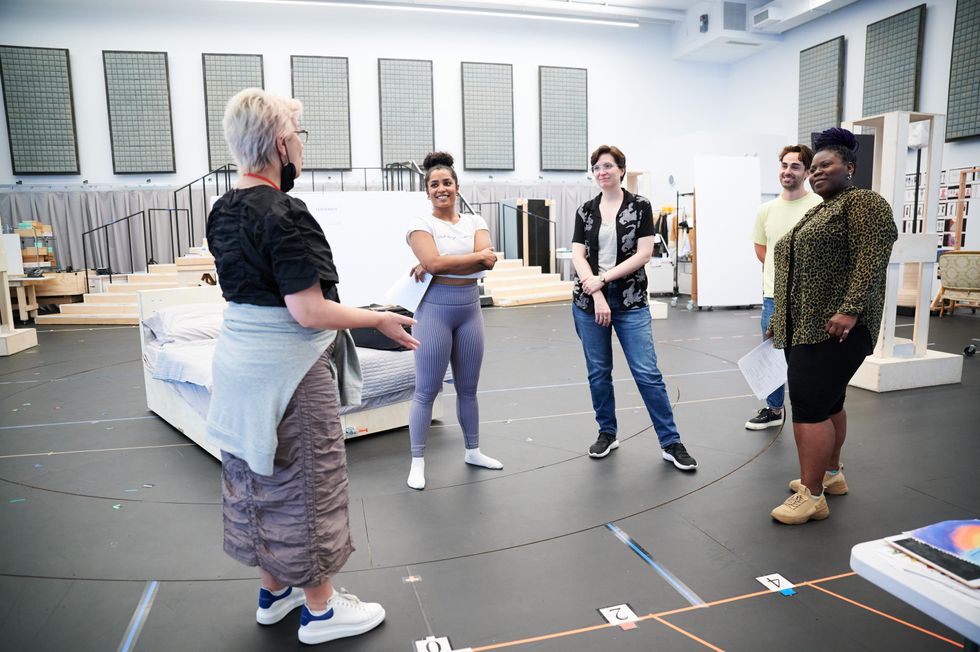
Anna D. Shapiro (left) at rehearsal with the 'The Devil Wears Prada: The Musical' cast.
Photo: Jenny Anderson
What was the process of reincarnating Miranda Priestly, so to speak, like? What does Beth Leavel bring to this character?
“If you think about Miranda in the movie, a lot of what you think about is that eyebrow raise, that tilt of the head, the hair—you can read the whole world on Meryl Streep’s face. In the theatre, there is no close-up. [You need] somebody whose power is very evident just with her standing there. There are a handful of people who can do that [on a Broadway stage]. I saw Beth in The Prom. I was like “That’s the person.” The thing that Meryl had, the thing that Beth has, is they’re funny as hell. They manifest it in different ways. Beth’s ability to hold the stage with her comedic timing is extraordinary. She’s also—she would kill me for saying this—so beautiful. Just by her standing there you buy that she’s running the show. The reincarnation of her is how to communicate power in a room that’s really big without having to get really big yourself. The development is the development of this very minimal vocabulary of movement, so that when she does bust out of it, as she does at the end of the show, it’s this incredibly wonderful surprise that you see inside of her.”
Will the fashion in the musical match current trends? What was involved in updating the fashion for the show?
“All of the costuming is current and updated. Our costume designer is Arianne Phillips—an absolute titan in the fashion field. She was Madonna’s costumer for 30 years. So many iconic looks that you think just always existed, Arianne created. There’s a combination of contemporary style and the understanding of couture—she has created several couture looks that are just astonishing. She has relationships with a lot of designers who we’re paying homage to with their approval. It’s been a huge part of the show—making sure that there is a cultural relevancy to the clothes that people are wearing—and she is doing an extraordinary job. It’s been important for us to replicate the mastery that comes with high fashion—the mastery that it takes to run one of the biggest areas of publishing in the world.”
Why do you feel this is an important story to tell?
“It’s a story that reflects the challenges of growing up, whether you’re growing up at 20, at 40, at 60—we have different phases we move through where we’re trying to decide who we are and what’s important to us. It’s about what choice you make around your own integrity, what your values are, and really engaging with the challenge we all have to figure out the difference between who we are and what we achieve. We are such a celebrity-driven, success-driven culture. I am so inspired by young people who are looking at that and starting to say, ‘That’s not a hamster wheel I want to get on.’ There is this question about what does it mean to be a good person and what does it mean to be a good friend and how are we going to live our lives? I feel like young people are starting to ask themselves that question a lot sooner than I was asking myself that question and I think that bodes well for us. We really have to figure out what is right for us, not what everyone else thinks is right for us. It embraces that conversation in a complex way while still being an incredibly fun ride.”
What are you going to wear on opening night?
“I think I’m going to wear The Row. I am going to, when she comes up for air, make Arianne pick it [out] for me because her taste is impeccable. I’m going to take full advantage [of her talent] while I can.”
The Devil Wears Prada: The Musical opens on July 19 and runs through August 21 at the James M. Nederlander Theatre in Chicago. Visit the show’s website for more information and to purchase tickets. The show is expected to open on Broadway in New York City in spring or summer 2023.

